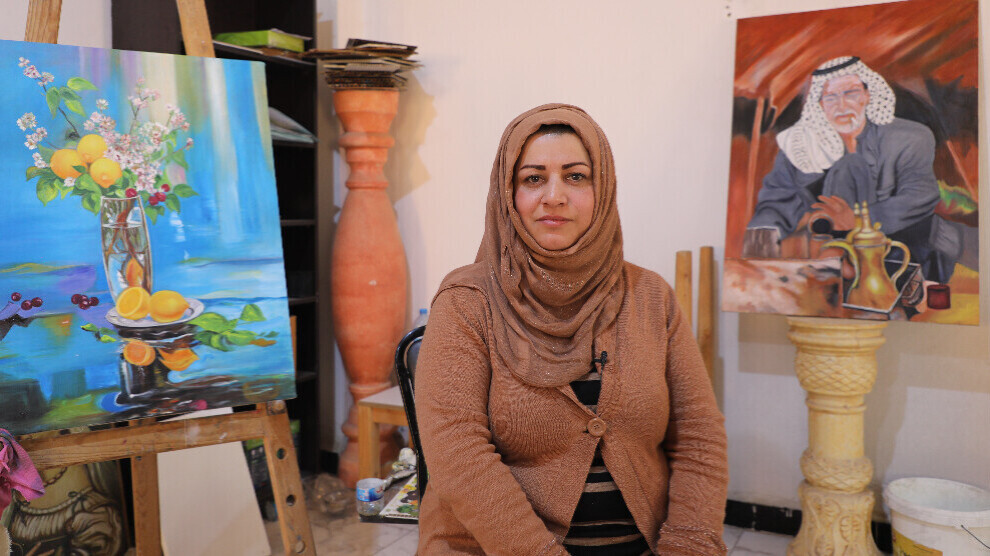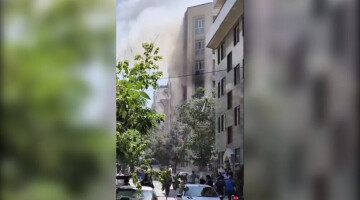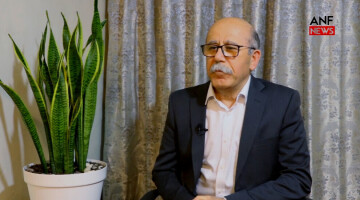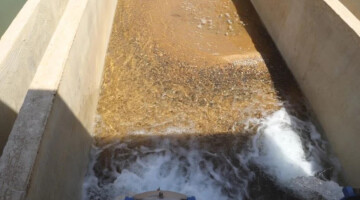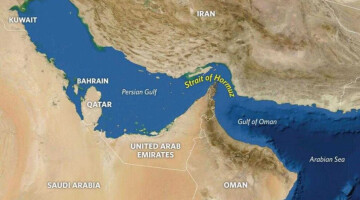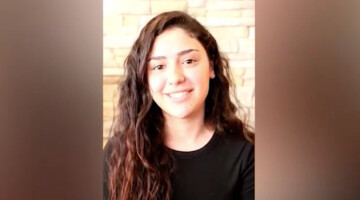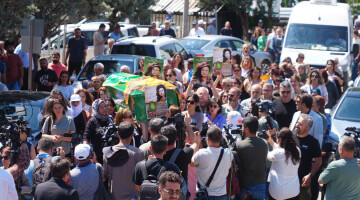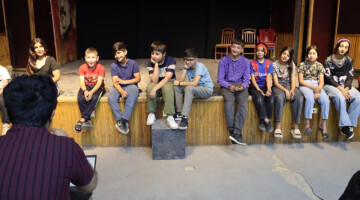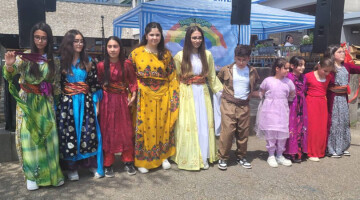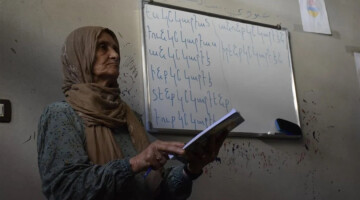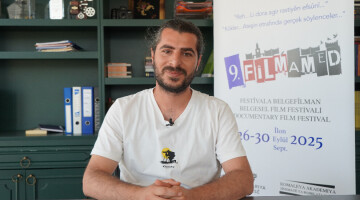From 2014 until its liberation in 2017, Raqqa was under the reign of terror of the self-proclaimed Islamic State. The ancient city had been chosen as the center and capital of the terror regime.
Art, culture, cultural heritage and history were destroyed, and people massacred. The liberation of Raqqa from ISIS by the Syrian Democratic Forces (SDF), in October 2017, was a long and hard struggle, but afterward the culture gradually began to grow again on the ISIS rubble.
The center of cultural development is the Art and Culture Center of Raqqa, which was newly created by the Autonomous Administration in 2019. ISIS destroyed the center in 2014.
The cultural center hosts events, exhibitions and educational programs in various areas of the visual and performing arts. It is a place where the development of creativity is encouraged and social relationships are strengthened.
In an interview with ANF, Hiva Ibrahim, co-chair of the center, explains that 37 people are currently working there. The activities range from theater and painting to music and folk dance to literature.
Ibrahim said: “Our cultural and arts groups work collectively. The cultural heritage of the peoples is preserved. Forgotten traditions and customs are kept alive. This is how the culture of the peoples is passed on to the new generation.”
“The peoples can freely develop culturally”
Hiva Ibrahim also underlined that during the period of the Baath regime nothing was possible without the permission of the Arab regime. That has now changed: “By proclaiming the Autonomous Administration, the peoples here can live and develop their culture freely.”
“ISIS was crushed and the Autonomous Administration established”
The cultural center was rebuilt after its destruction by ISIS. Speaking about the history of the center, Ibrahim said: “Before ISIS, the Front al-Nusra was in Raqqa. The cultural and arts center had been reduced to rubble by the mercenaries and was completely destroyed by bombing. The Autonomous Administration reorganized the Raqqa Culture and Art Center in 2019. People freely exhibit their culture and art there.”
“A cultural fusion in Raqqa”
Ibrahim added: “We encourage a cultural fusion. The peoples come together, paint, sing and play theatre." Ibrahim added that Arab and Kurdish people in particular carry out cultural activities in the center together and in solidarity and exchange cultural knowledge and ideas.
She said: "So far, around 100 adults trained in various artistic fields. Every year there is a children's festival in Raqqa. For this festival, 70 children are prepared to exhibit their skills."

